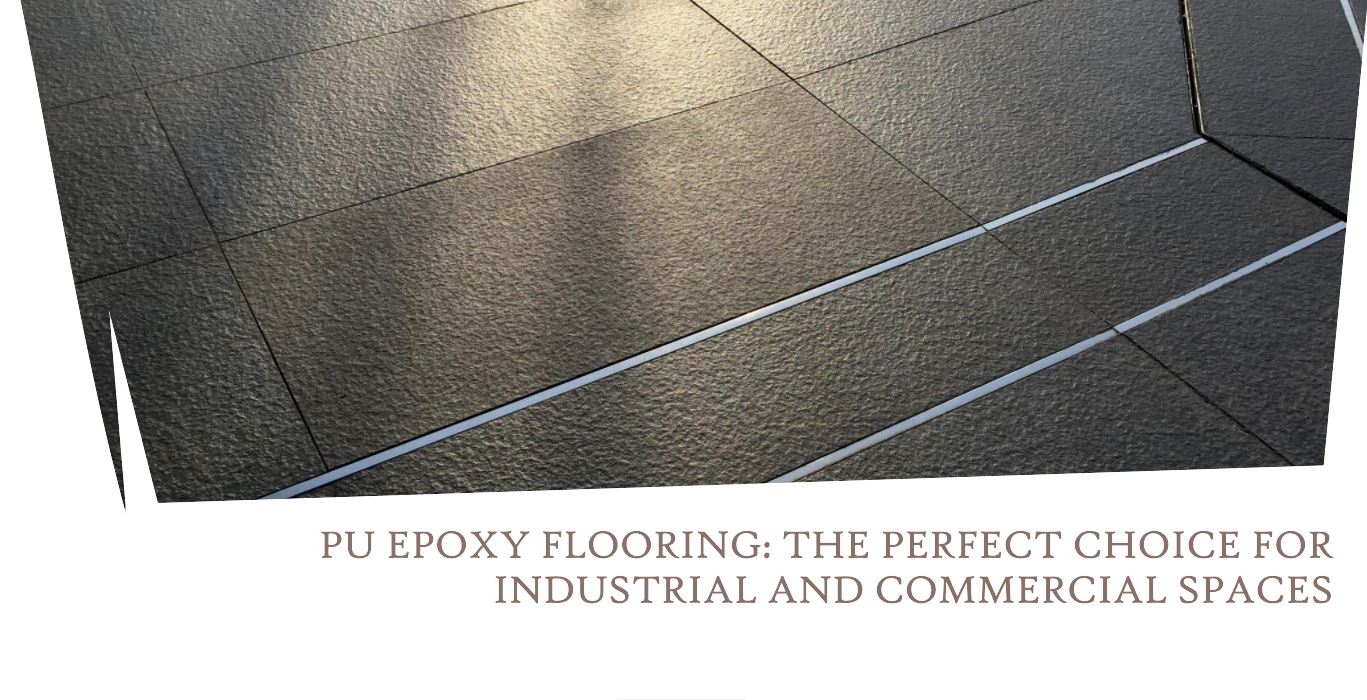Epoxy floors are perfect for areas that see heavy traffic such as warehouses with forklifts. Not only are they exceptionally hard, they also offer outstanding protection and make cleaning simple.
However, they are less resistant to certain chemicals like lactic acid; thus making PU flooring the superior choice for food industries. Furthermore, PU flooring offers enhanced resistance against artificial corrosives like sulfuric acid.
High-performance
For floors that can withstand both footfall and forklift traffic, pu epoxy flooring is an ideal option. Durable and low maintenance requirements aside, its many chemical resistant qualities (corrosive resistance included!) makes cleaning quick and simple while the high moisture tolerance allows it to easily resist spillage.
Pu Epoxy flooring materials are highly resilient, long-term flooring options that bond strongly to concrete surfaces, often used for resurfacing products or to repair cracks and holes in the concrete surface. Epoxy coatings come in various colors to match different textures of floors; to apply an epoxy coating successfully on top of your surface you must first grind and clean thoroughly while making sure there is no oil or grease present on its surface.
Polyurethane floors may cost more than epoxy alternatives, but they offer numerous advantages over their counterparts. PU floors are resistant to humidity and cure faster; meaning you can complete multicoat projects more quickly.
PU flooring’s main advantage lies in its UV resistance. This can prevent its color from fading over time and yellowing over time; making PU an excellent option for areas that will be exposed directly to sunlight. Furthermore, its flexibility makes PU more adaptable than epoxy floors for various settings and situations.
Durable
Epoxy floors are hard, impact resistant surfaces that provide ease of cleaning and create an seamless surface, making them suitable for most environments and heavy traffic areas alike. Furthermore, epoxy flooring requires less maintenance than concrete surfaces while lasting longer as an investment option.
Polyurethane flooring may be slightly less rigid than epoxy resin, yet still provides protection from mechanical stress and temperature extremes than its epoxy counterpart. Furthermore, it’s resistant to chemicals and has high compression strength for greater compression strength in industrial settings like food processing plants; additionally this resin type works great as static reduction in computer or electronics manufacturing facilities.
PU is more resistant to staining and chemical damage than other resins, with great strength against natural acids such as lactic acid found in dairy processing facilities and artificial corrosives such as sulfuric acids. Compared with epoxy, its advantage in protecting against artificial corrosion lies with its better protection from artificial corrosives like sulfuric acids is also more apparent.
Although PU is durable, its susceptibility to humidity can present problems in certain industries if floors haven’t fully set. Furthermore, adding additional coats in the future may prove challenging due to moisture problems. By comparison, epoxy flooring is more moisture resistant and installation time is dramatically decreased; its low VOC content also allows it to come in an assortment of colors.
Easy to maintain
Epoxy floors are among the most resilient floor coatings. They can withstand high levels of traffic and heavy machinery like forklifts without showing signs of wear and tear. Furthermore, epoxy floors are easy to maintain and clean using different techniques; unlike other forms of flooring, epoxy does not need to be waxed regularly – however, regular sweeping and mopping will keep it clean.
To keep the luster of your epoxy garage floor vibrant and stunning, you should regularly use mild cleaners such as Windex or simple lactic acid-based cleaners like Lactic-Acid Cleaner Solution to apply and scrub with a brush a mild cleanser such as Windex; do not allow this solution to sit on your floor longer than two minutes and be aware that engine oil spills can be devastating; any such accidents must be cleaned up immediately!
Epoxy and PU resins share many similar characteristics; both resist staining, have good durability, and cure faster than epoxy; however, PU has superior UV radiation resistance and more moisture sensitivity, which could negatively impact its performance in certain industries. However, epoxy may have more of an edge in terms of stain resistance due to being resistant against staining while being more affordable overall.
Eco-friendly
Epoxy floor coatings provide a safe and long-term durable option for both home or commercial use, including non-toxic cleaning procedures and customizable designs to match any design aesthetic. Furthermore, epoxy can reduce VOC emissions into the air which help the environment by keeping VOC levels under control.
VOCs (Volatile Organic Compounds) are harmful gases that can lead to numerous health concerns. Emitted by many household products like paints, carpeting and craft materials. Since epoxy floors are composed largely of recycled materials they emit significantly less VOCs compared with traditional flooring options and can easily be resurfaced and resealed making them an economical and long-term durable choice for homes or businesses alike.
Both epoxy and PU floors offer high resistance to chemicals; however, PU floors are more sensitive to humidity than epoxy, meaning if one comes into contact with water or humidity too early it could cause irreparable damage.
PU floors are also more flexible than epoxy flooring, allowing users to extend or decrease the pot life, recoat time, and total cure time as desired. This flexibility makes installing PU floors faster than installing epoxy, with no stripping required prior to application reducing waste and eco-friendliness benefits as well as no UV sensitivity that causes fade or yellowing over time.
